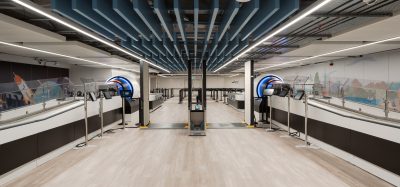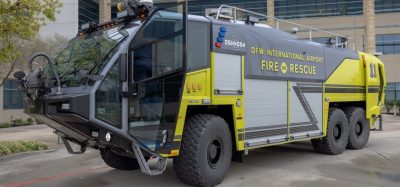Interview Spotlight: Todd Alderman, Director of Business Development, Daifuku Airport Technologies
- Like
- Digg
- Del
- Tumblr
- VKontakte
- Buffer
- Love This
- Odnoklassniki
- Meneame
- Blogger
- Amazon
- Yahoo Mail
- Gmail
- AOL
- Newsvine
- HackerNews
- Evernote
- MySpace
- Mail.ru
- Viadeo
- Line
- Comments
- Yummly
- SMS
- Viber
- Telegram
- Subscribe
- Skype
- Facebook Messenger
- Kakao
- LiveJournal
- Yammer
- Edgar
- Fintel
- Mix
- Instapaper
- Copy Link
Posted: 21 February 2017 | International Airport Review | No comments yet
Todd Alderman, reveals more about Daifuku Airport Technologies who develop, manufacture and provide a full range of automation and logistics solutions…


How important is an efficient baggage handling system to an airport’s success?
It is critical. An inefficient system requires much more operator involvement and lacks the flexibility necessary to deliver each bag to the plane, on time, every time. The airport operating environment is unpredictable and benefits from a flexible system that can accommodate unexpected changes. High bag tracking accuracy leads to on-time departures and fewer mishandled bags, which leads to increased passenger satisfaction.
How has the baggage handling industry evolved?
The baggage handling industry has generally been slow to adopt new technologies, especially in North America. Belt conveyors and laser bar code readers have been the standard for the past 20+ years. However, we are seeing a trend to more Individual Carrier Systems (ICS) where each bag is loaded into a tray. ICS systems provide improved bag tracking and reliability by eliminating variations in bag conveyability.
What is special about the baggage tracking system which Daifuku offers?
Daifuku approaches bag tracking at both the equipment level and through graphical visualisation. Daifuku offers a traditional ICS system utilising individual trays per bag as well as mobile robots that transport individual bags. Either way each bag is positively identified to the carrier that is transporting it. This allows for nearly 100% bag tracking as the sliding and jamming seen on traditional belt conveyor systems is eliminated. Detroit Metropolitan Airport was the first to integrate the mobile robot technology into the baggage handling system. At the visualisation level, Daifuku utilises its Sym3 3D visualisation software to track bags throughout the baggage handling system. Sym3 provides a 3D representation of the baggage handling system along with the bags in the system in real-time. Critical information, such as flight number, class of service, security screening status, etc., can be displayed. Sym3 has been installed successfully at many airports throughout the world, providing enhanced bag traceability beyond traditional 2D static monitoring systems. These solutions assist in fulfilling the IATA Resolution 753 requirements which is required by June 2018.
Will the advent of RFID in baggage tracking be revolutionary?
RFID has just started to gain traction in the baggage handling industry. RFID tags provide high read rates over traditional laser scanners for identifying bags in a system. However, as baggage size and shapes are unpredictable there are challenges regarding the position of the tag on the bag. Most ICS systems utilise RFID tags in the trays to positively identify the bags throughout the system.
How does mobile tracking factor into this technology?
Mobile tracking is becoming a key tool in today’s baggage systems. Daifuku’s Sym3 is mobile-capable, allowing operators to view baggage system operations on tablets and smartphones. Daifuku’s baggage handling software, WebbView, provides mobile access to the flight assignments for the baggage system, as well as reporting and data analytics. Putting KPIs at the operator’s fingertips allows for proactive management of the baggage systems.
What other technologies do you think we’ll see emerging in this sector?
We will continue to see advancements in mobile robot technology , expanding beyond the systems we see today. This automation will enable airport operators and carriers to operate more efficiently and have greater flexibility. Also, expect mobile monitoring to continue to evolve allowing operators and managers to make informed decisions.
Todd Alderman is a graduate from the University of Michigan with a Bachelor’s of Science in Mechanical Engineering and a Masters of Business Administration. Todd has 20 years of experience in the baggage handling industry. He serves on the TSA Industry Working Group for the development of the Planning Guidelines and Design Specification for checked baggage inspection systems. He is responsible for airport baggage handling business development and new product innovations for Jervis B. Webb Company of Daifuku Airport Technologies.


















